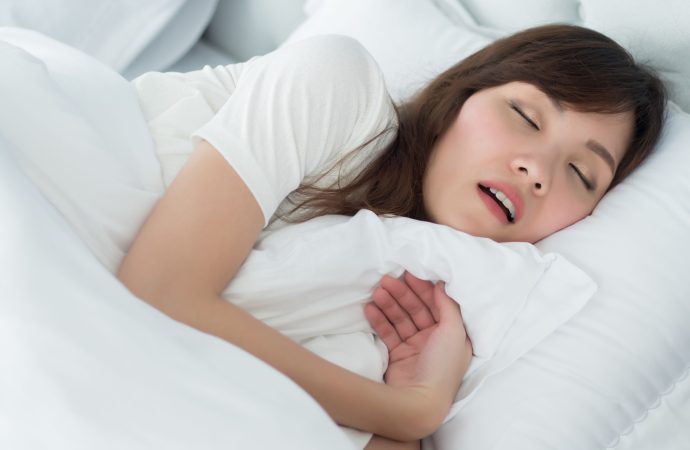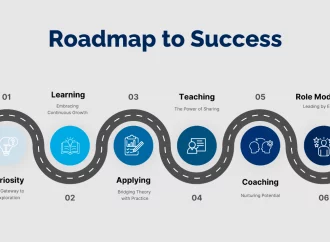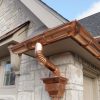Introduction Teeth clenching, also known as bruxism, is a common yet often overlooked condition that affects many individuals during sleep. The involuntary grinding or clenching of teeth can lead to various complications, including jaw pain, headaches, and dental issues. Addressing this nocturnal habit is crucial for both oral health and overall well-being. In this comprehensive
Introduction
Teeth clenching, also known as bruxism, is a common yet often overlooked condition that affects many individuals during sleep. The involuntary grinding or clenching of teeth can lead to various complications, including jaw pain, headaches, and dental issues. Addressing this nocturnal habit is crucial for both oral health and overall well-being. In this comprehensive guide, we’ll explore effective strategies to quiet nocturnal grinds and put an end to teeth clenching once and for all. Explore More About (Motion Sickness)
Understanding Bruxism
Bruxism occurs in two forms: awake bruxism and sleep bruxism. Awake bruxism usually involves clenching or grinding teeth during waking hours and is often associated with stress or anxiety. Sleep bruxism, on the other hand, occurs during sleep and is more challenging to control as individuals are unaware of their actions.

Image by: yendex.com
Identifying Symptoms
Recognizing the symptoms of bruxism is the first step towards managing the condition. Common signs include:
- Jaw Pain: Waking up with soreness or tightness in the jaw.
- Headaches: Persistent headaches, especially in the temples or forehead.
- Tooth Sensitivity: Increased sensitivity or pain in the teeth, especially upon waking.
- Worn Tooth Enamel: Visible signs of tooth wear or damage.
- Disrupted Sleep: Poor quality sleep or waking up frequently during the night.
Strategies for Managing Bruxism
While there is no one-size-fits-all solution for bruxism, several strategies can help alleviate symptoms and reduce teeth clenching episodes.
1. Stress Management Techniques
Since stress is a common trigger for bruxism, incorporating stress management techniques into your daily routine can be beneficial. Practices such as yoga, meditation, deep breathing exercises, and mindfulness can help relax the muscles and promote better sleep quality.
2. Nighttime Oral Appliances
Using a custom-fitted mouthguard or splint during sleep can protect the teeth from grinding and clenching. These oral appliances create a barrier between the upper and lower teeth, preventing excessive wear and reducing muscle tension in the jaw.
3. Lifestyle Modifications
Making lifestyle changes can also contribute to managing bruxism effectively. Avoiding stimulants like caffeine and alcohol before bedtime, maintaining a regular sleep schedule, and practicing good sleep hygiene are essential habits to promote restful sleep and reduce teeth clenching.

Image by: yendex.com
4. Muscle Relaxation Techniques
Engaging in muscle relaxation exercises before bedtime can help ease tension in the jaw and promote relaxation. Techniques such as progressive muscle relaxation, massage therapy, and warm compress application to the jaw area can alleviate muscle stiffness and reduce the likelihood of nocturnal grinding.
5. Cognitive Behavioral Therapy (CBT)
In some cases, cognitive behavioral therapy (CBT) may be recommended to address underlying psychological factors contributing to bruxism. CBT aims to identify and modify negative thought patterns and behaviors associated with stress, anxiety, or sleep disturbances, ultimately helping individuals develop healthier coping mechanisms.
6. Dental Treatments
Seeking professional dental care is essential for managing bruxism effectively. Your dentist may recommend treatments such as dental adjustments to correct misaligned teeth, dental restorations to repair damage caused by grinding, or botulinum toxin injections to relax the jaw muscles.

Photo by: www.pexels.com
| Strategy | Description |
|---|---|
| Stress Management Techniques | Practices such as yoga, meditation, deep breathing exercises, and mindfulness can help relax the muscles and promote better sleep quality. |
| Nighttime Oral Appliances | Custom-fitted mouthguards or splints create a barrier between the upper and lower teeth, preventing excessive wear and reducing muscle tension in the jaw. |
| Lifestyle Modifications | Avoiding stimulants like caffeine and alcohol, maintaining a regular sleep schedule, and practicing good sleep hygiene can promote restful sleep and reduce teeth clenching. |
| Muscle Relaxation Techniques | Progressive muscle relaxation, massage therapy, and warm compress application can alleviate muscle stiffness and reduce the likelihood of nocturnal grinding. |
| Cognitive Behavioral Therapy (CBT) | CBT aims to identify and modify negative thought patterns and behaviors associated with stress, anxiety, or sleep disturbances, ultimately helping develop healthier coping mechanisms. |
| Dental Treatments | Dental adjustments, dental restorations, or botulinum toxin injections may be recommended by a dentist to manage bruxism effectively. |
Conclusion
Teeth clenching can have significant implications for oral health and overall well-being if left unaddressed. By understanding the underlying causes and implementing appropriate strategies, individuals can effectively manage bruxism and enjoy a more comfortable and restful sleep. From stress management techniques to nighttime oral appliances and dental treatments, there are various options available to quiet nocturnal grinds and put an end to teeth clenching for good.




















